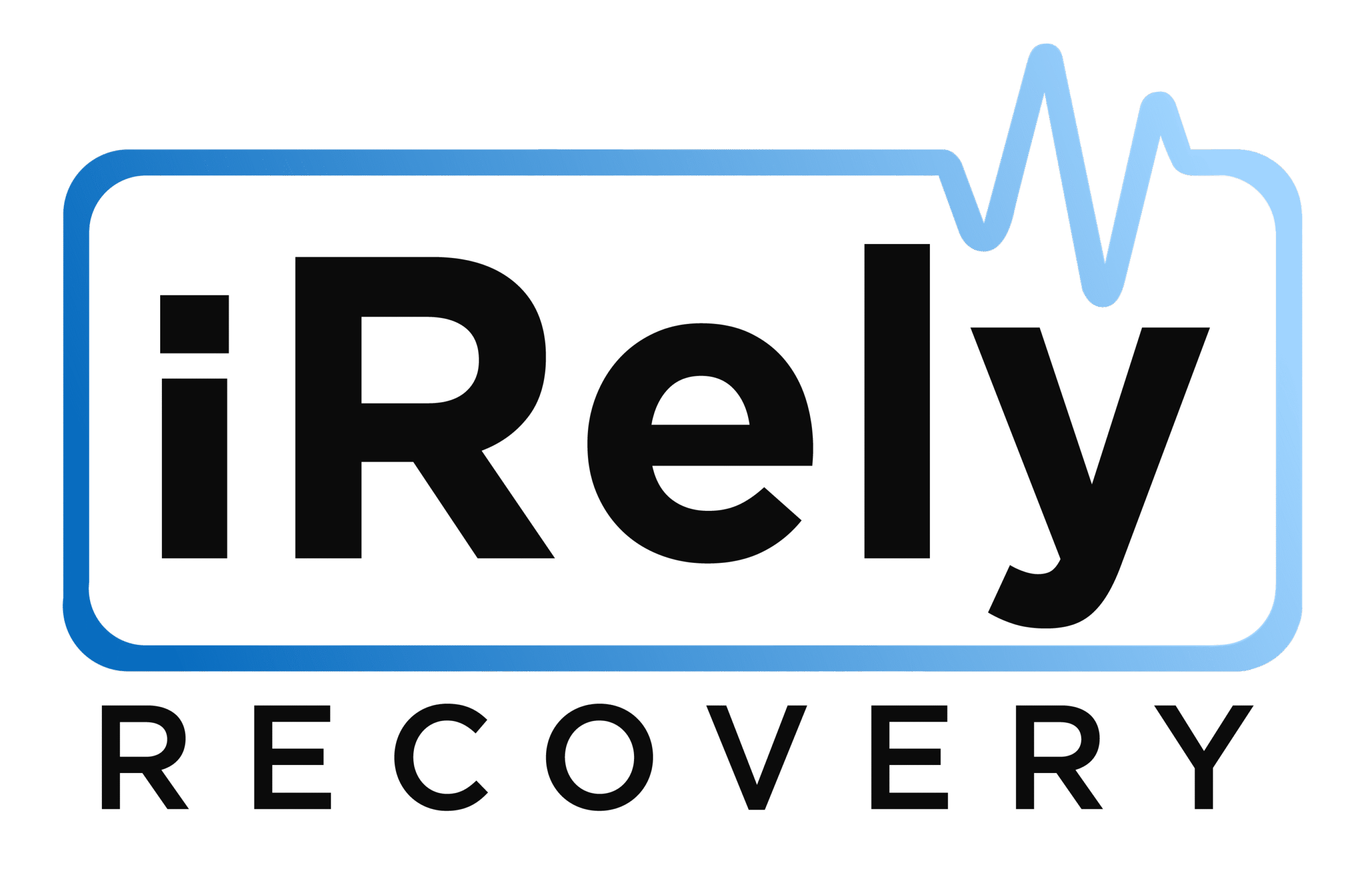Video games or internet games can be a fun pastime for many. But for others, gaming crosses the line from entertainment to obsession. When your life starts revolving around screen time and your relationships, health, or job suffer because you can’t log off and unplug, it’s no longer a hobby – it’s a problem.
If you or a loved one is stuck in the cycle of compulsive gaming, it could be a gaming disorder that needs help. But you don’t have to face it alone. Compassionate, evidence-based care at gaming addiction treatment centers in Los Angeles can help you break the cycle of compulsive gaming. iRely is ready to help and will provide a financial analysis to ensure treatment is an option.
KEY POINTS
- Gaming addiction is a compulsive need to engage in gaming to the point of negatively impacting one’s life.
- Gaming addiction is classified as a disorder in the DSM-5 and the ICD-11.
- Problem gaming can have wide-reaching adverse effects, including possible physical or mental health problems.
- Gaming addiction rehab focuses on addressing the behaviors that contribute to compulsive game play and developing better balance.
What Is Gaming Addiction?
Gaming addiction, or video game addiction, is defined as “the steady and repetitive use of the internet to play games with different gamers, potentially leading to negative consequences in many aspects of life.”[1] Although this includes gaming on any electronic device, such as a laptop, smartphone, or portable gaming device, gaming addiction often involves the internet.[2]
Gaming addiction is recognized as a mental health disorder, but there’s debate among researchers as to what and how it should be classified. Some researchers consider gaming addiction a behavioral addiction like gambling, while others consider it a mental illness.[3]
Classification of Gaming Addiction
The Diagnostic and Statistical Manual of Mental Disorders (DSM-5) classifies gaming addiction as internet gaming disorder (IGD).[4] It’s in a section with other conditions that need more research, such as caffeine use disorder. The criteria for IGD include:[5]
- Preoccupation with gaming
- Psychological withdrawal symptoms occur when gaming is not possible or is removed
- The need to spend more time gaming to satisfy the craving (tolerance)
- An inability to control the time spent playing or quit gaming
- Giving up or losing interest in other activities because of gaming
- Continuing to game despite the problems it causes
- Secretive behaviors, such as lying about time spent gaming
- The use of gaming to alleviate negative moods
- Gaming that negatively impacts other areas of life, such as work or relationships
Gaming disorder is classified as a behavioral addiction and just refers to gaming, not internet use, online gambling, or social media use, which are not classified but may fall under internet addiction.
The World Health Organization (WHO) also recognizes gaming disorder in the 11th Revision of the International Classification of Diseases (ICD-11). Similarly, it’s defined as “a pattern of gaming behavior characterized by impaired control over gaming, increasing priority given to gaming over other activities to the extent that gaming takes precedence over other interests and daily activities, and continuation or escalation of gaming despite the occurrence of negative consequences.”[6]
What Causes Gaming Addiction?
Gaming taps into the brain’s reward system, just like substance abuse. Like any other substance or behavior that can be addictive, it begins with a conscious choice to engage, which affects key parts of the brain, such as the prefrontal cortex (PFC) and ventral striatum (VS), which are responsible for judgment and reward processing.[7]
Repeated use activates the dorsal striatum (DS), a brain region heavily influenced by dopamine that plays a crucial role in cognition and decision-making, facilitating connections between stimuli and actions.[8] The action of playing video games shifts from a voluntary to a habitual and compulsive behavior. Over time, this can alter how dopamine pathways work, reducing the brain’s response to natural rewards like food or sex and prioritizing the addiction.[9] As addiction develops, the brain becomes more sensitive to triggers like seeing a game controller and needs more and more gameplay to achieve the same effects.
However, not everyone who plays video games develops an addiction. There are some psychological risk factors, such as anxiety or impulsiveness, that can make addiction more likely.[10]
Take the first step towards recovery
Our admissions office is standing by to help you start recovering.
Effects of Gaming Addiction
Gaming addiction can have devastating emotional, psychological, physical, and neurological effects in both the short and long term, including:[11]
- Health conditions like obesity, diabetes, and coronary artery disease are associated with a more sedentary lifestyle, particularly in children
- Repetitive stress injuries arising from overuse of muscles and tendons in the hands and arms, leading to conditions like carpal tunnel, tennis elbow, or de Quervain’s tenosynovitis (gamer’s thumb)
- Vision problems like eye strain, leading to headaches, and poor concentration
- Possible seizures due to visual stimuli
- Social isolation or strained in-person relationships
- Increased anxiety and depression
Statistics on Video Game Addiction
Online gaming is extremely popular, especially with most people having access to internet-enabled devices. According to the Entertainment Software Association, roughly two-thirds of U.S. households have at least one gamer.[12]
Another study estimates that about 160 million U.S. adults play internet games. Even with researchers unsure about the classification, it’s estimated that video game addiction affects between 1.7% and 10% of the U.S. population.[13]
Video game addiction is a particular concern among young people. According to the American Medical Association, about 90% of young Americans play computer games, and 15% of them could be considered addicted.[14]
Treatment Modalities at Our Gaming Addiction Treatment Center in Los Angeles
Our treatment programs for gaming addiction focus on modifying the behaviors associated with problem gaming and developing healthier habits through modalities like:
- Individual therapy: One-on-one sessions help you explore the underlying causes of gaming behavior and create goals for change.
- Family therapy: Family therapy can repair relationships and establish healthy boundaries, particularly for teens and young adults struggling with gaming addiction.
- Group therapy: This format brings together peers to build a sense of community and reduce feelings of isolation while learning from the experiences of others.
- Recovery-oriented treatment: This approach focuses on building resilience and purpose beyond symptom management, fostering long-term balance and wellness.
- Cognitive behavioral therapy (CBT): CBT helps individuals identify and change thought patterns that contribute to excessive gaming, such as chasing rewards or avoiding discomfort.
- Dialectical behavioral therapy (DBT): DBT offers tools for emotional regulation, impulse control, and distress tolerance to manage gaming compulsions.
- Acceptance & commitment therapy (ACT): ACT encourages the acceptance of unpleasant emotions and committing to actions aligned with values.
- Adventure therapy encourages real-world engagement and fosters emotional resilience beyond the virtual gaming world.
- Trauma-informed care: Trauma-informed care recognizes that past trauma can affect gaming behaviors and takes a safe and respectful approach to treatment.
- Experiential therapy: Experiential therapy helps release emotions and fosters insight through expressive therapies, including art, music, and role-playing.
- Mindfulness-based therapy: Mindfulness teaches you to pause, reflect, and respond instead of acting impulsively, reducing gaming urges.
- Motivational interviewing (MI): MI helps you identify ambivalence and sparks internal motivation for change.
Frequently Asked Questions About Gaming Addiction
Is Gaming Addiction a Real Disorder?
Both the DSM-5 and the WHO ICD-11 recognize gaming disorder as a behavioral addiction, though there is some debate about the classification. More research is needed to understand gaming addiction better.
Do I Have to Stop Playing Games After Treatment?
Depending on the severity of your gaming addiction, you may need to stop playing games completely during video game addiction treatment and for a time after. Some people need total abstinence to avoid relapse in the future, while others may be able to reintegrate gaming in moderation.
What Is Considered a Gaming Addiction?
A gaming addiction involves a compulsive need to play games or an inability to control gaming habits that can have a negative impact on daily life.
Can Anyone Develop a Gaming Addiction?
Plenty of people play video games or online games without developing an addiction, but it is possible. It’s essential to be aware of the time you spend gaming, especially if you notice that it’s taking precedence over other aspects of your life, such as relationships, work, school, or personal hygiene.
Does Insurance Cover Rehab for Gaming?
Insurance providers do not cover gaming addiction rehab and treatment programs, but treatment is still an option. Our admissions team at IRely Recovery will offer a financial analysis to explain your options.
Sources
[1] Mohammad, S., Jan, R. A., & Alsaedi, S. L. (2023, March 31). Symptoms, mechanisms, and treatments of video game addiction. Cureus. https://pmc.ncbi.nlm.nih.gov/articles/PMC10065366/
[2,3] Video game addiction: What it is, symptoms & treatment. Cleveland Clinic. (2025, March 19). https://my.clevelandclinic.org/health/diseases/23124-video-game-addiction
[4,5,6] Internet gaming. Psychiatry.org – Internet Gaming. (n.d.). https://www.psychiatry.org/patients-families/internet-gaming
[7,8,9] Mohammad, S., Jan, R. A., & Alsaedi, S. L. (2023, March 31). Symptoms, mechanisms, and treatments of video game addiction. Cureus. https://pmc.ncbi.nlm.nih.gov/articles/PMC10065366/
[10] Video game addiction: What it is, symptoms & treatment. Cleveland Clinic. (2025, March 19). https://my.clevelandclinic.org/health/diseases/23124-video-game-addiction
[11] The health effects of too much gaming. Harvard Health. (2020, December 22). https://www.health.harvard.edu/blog/the-health-effects-of-too-much-gaming-2020122221645
[12] Internet gaming. Psychiatry.org – Internet Gaming. (n.d.). https://www.psychiatry.org/patients-families/internet-gaming
[13] Video game addiction: What it is, symptoms & treatment. Cleveland Clinic. (2025, March 19). https://my.clevelandclinic.org/health/diseases/23124-video-game-addiction
[14] Mohammad, S., Jan, R. A., & Alsaedi, S. L. (2023, March 31). Symptoms, mechanisms, and treatments of video game addiction. Cureus. https://pmc.ncbi.nlm.nih.gov/articles/PMC10065366/




